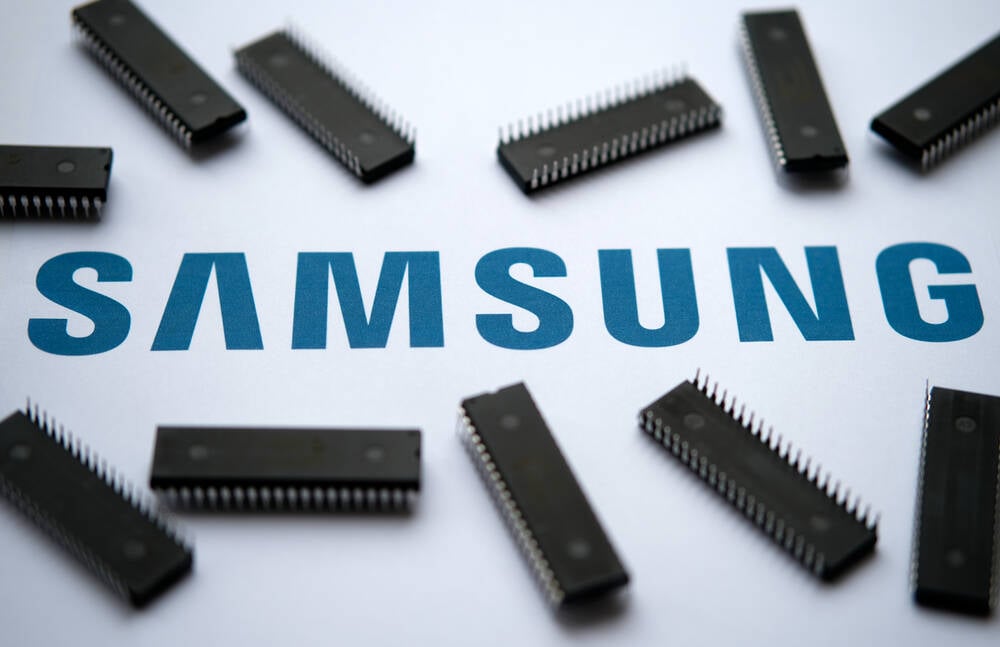Samsung Pins Hopes On AI To Return To Growth This Year

Samsung Electronics' is betting that demand for generative AI will equate to a busy year for memory sales.
The Korean technology giant today reported revenue of ₩67.78 trillion ($50.8 billion) for calendar Q4, down from the ₩70.5 trillion ($52.8 billion) it reported in the same period a year earlier.
Operating profit plunged 34 percent year-on-year to ₩2.82 trillion ($2.11 billion) - marking the lowest haul since 2008.
However, on an earning confernece call this morning, execs at Sammy pointed out that things are generally picking up versus the prior quarter, based on higher memory prices and sales of premium displays.
The memory market showed an upward trend in Q4, according to Samsung's EVP for Memory, Jaejune Kim. Investment in generative AI expanded across the IT industry, and with inventory levels largely reduced to normal, memoru orders showed signs of an uptick, he said.
Kim said Samsung concentrated on beefing up sales of higher margin components including HBM, DDR5, LPDDR5X, UFS 4.0, and so on during the quarter, and this meant the DRAM product line turned a profit.
"As a result, growth exceeded the market level and inventory depletion of both DRAM and NAND accelerated. In particular, DRAM inventory improved even more significantly and the DRAM business became profitable, thanks to ASP (average selling price) increase," Kim said.
The sales pipeline is expected to continue to swell in Q1, although Kim cautioned that in the case of servers and storage, "it seems that maybe we need to wait one or two more quarters to see whether there will be a full recovery in demand or not."
Samsung's hope is that improved memory profitability will come as more tech makers manufacturers integrate gen AI, Kim said, with the entire memory business expected to return to the balc during the quarter.
Looking further ahead, Samsung is conident the memory business will remain on its feet, recovering despite potential disruption from future interest rate policies and "geopolitical risks."
- Things are going to get weird as the nanometer era draws to a close
- Seoul restores smartphone subsidies because premium handsets are apparently essential
- Samsung's Galaxy S24 pitch: The AI we baked in makes you more human
- Global semiconductor revenues slid 11 percent in 2023, despite AI silicon splurge
The adoption of on-device AI is forecast to see demand for more memory in commercial PCs and flagship smartphones. Samsung expects server demand to gradually recover as server replacements, postponed under last year's tightened budgets, proceed in conjunction with the switch to a new platform, Kim said.
Samsung plans to introduce the industry's highest capacity 32 Gb DDR5 based on its 1b fabrication process this year and ramp up next-generation HBM3E, he claimed.
Beyond memory chips, Samsung expects the smartphone market to rebound this year, but warned that "it remains to be seen whether the recent increase in orders for smartphones will lead to overall earnings growth for this year."
Samsung did claim, however, that its latest Exynos 2400 system-on-chip was selected for "a major customer's flagship smartphone" and was already contributing to earnings.
For its Foundry Business, Samsung said Q4 saw sluggish demand, but it expects demand to gp up this year thanks to the launch of AI smartphones and AI PCs.
Foundry EVP Gibong Jeong said the business is focused on improving yields and optimizing the second generation of its 3 nm GAA (gate all-around) fabrication process. "Additionally, we are getting ready for the future by securing a 2nm AI accelerator order," he said.
The overall message from Samsung is clear: an upswing in the semiconductor market is coming thanks to AI, especially in memory, and Samsung aims to ride that wave.
"In 2024, we expect memory market conditions and IT demand to keep recovering even though a number of macroeconomic risks are likely to remain elevated," said Samsung's head of Investor Relations, Daniel Oh.
"Samsung Electronics will fully respond to the demand for AI-used semiconductors, while striving to establish early strongholds in markets for AI-enabled consumer products. Also, we will fortify our leadership in premium products and competitiveness in advanced nodes while we continue to prepare for future technologies." ®
From Chip War To Cloud War: The Next Frontier In Global Tech Competition
The global chip war, characterized by intense competition among nations and corporations for supremacy in semiconductor ... Read more
The High Stakes Of Tech Regulation: Security Risks And Market Dynamics
The influence of tech giants in the global economy continues to grow, raising crucial questions about how to balance sec... Read more
The Tyranny Of Instagram Interiors: Why It's Time To Break Free From Algorithm-Driven Aesthetics
Instagram has become a dominant force in shaping interior design trends, offering a seemingly endless stream of inspirat... Read more
The Data Crunch In AI: Strategies For Sustainability
Exploring solutions to the imminent exhaustion of internet data for AI training.As the artificial intelligence (AI) indu... Read more
Google Abandons Four-Year Effort To Remove Cookies From Chrome Browser
After four years of dedicated effort, Google has decided to abandon its plan to remove third-party cookies from its Chro... Read more
LinkedIn Embraces AI And Gamification To Drive User Engagement And Revenue
In an effort to tackle slowing revenue growth and enhance user engagement, LinkedIn is turning to artificial intelligenc... Read more

